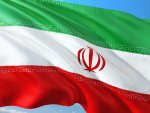By James M. Dorsey
The 2022 Qatar World Cup may be sparking social change in the Gulf, just not (yet) in Qatar.
Qatar’s winning of the hosting rights for the World Cup gave human rights and trade union activists the leverage they needed to more effectively pressure the Gulf state for reform, if not abolition, of its controversial kafala or labour sponsorship system that puts employees at the mercy of their employers.
While focused on Qatar, the campaign also targeted other Gulf states and prompted other activists to focus on high-profile construction projects like sites for Western museums and universities in the UAE. It also motivated countries across the region to tinker with their labour systems. While Qatar made lofty promises of reform and engaged with its critics, the UAE and other Gulf states rejected criticism and barred activists entry to their countries.

Now however, as Qatar continues to dither, the UAE has decreed the very reforms, Qatar has yet to implement nationwide, and a prominent Saudi intellectual has called for abolition of kafala in the kingdom. Kuwait recently became the first Gulf state to pass legislation granting domestic workers greater rights. By contrast, students last month denounced conditions for workers at Weill Cornell Medical College in Doha.
The UAE move and public debate in other Gulf states deprives Qatar, a supporter of change across the Middle East and North Africa with the exception of the Gulf, of its claim to be on the cutting edge of transition in the region. It also casts further doubt on the sincerity of Qatar’s promises.
Qatar has promised to pass legislation by the end of this year that would ease procedures for exit visas and improve recruitment, housing and working conditions for migrant workers who constitute a majority of the Gulf state’s population.
Several major Qatari institutions, including the 2022 Supreme Committee for Delivery & Legacy and Qatar Foundation, have adopted standards that go a far way to meet activists’ demands but these have yet to be enshrined in national law. Qatar has suggested that its emir, Sheikh Tamim bin Hamad bin Khalifa Al Thani, would approve legislation by the end of this year.
International Trade Union Confederation (ITUC) secretary general Sharon Burrow noted after a visit to Oman last month that the Gulf state had just about as many migrant workers as Qatar does but that its laws did not discriminate between Omani and foreign workers even though Omanis, migrant workers and western expatriates have different contract terms. Ms. Burrow further noted that in contrast to Qatar workers were allowed to unionize and elect their leaders and were accorded “humane accommodation.”
“In Oman you feel optimism and the hope of a shared future. In Qatar you feel discrimination, denial and a master-servant relationship. Common region, shared cultures, neighbours – why the difference?” Ms. Burrow asked.
Leaving Qatar looking like a straggler, the UAE last month decreed labour reforms that aim to tighten oversight of employment agreements for migrant workers with the exception of domestic labour. The decrees focus on improving transparency of job terms and employment contracts, spell out how contracts can be broken, and could make it easier for workers to switch employers.
Under the new policies, prospective workers would be asked to sign a standard employment offer in their home country that would in turn be filed with the labour ministry before a work permit is issued. That agreement would then be registered as a legal contract once the worker arrives in the country, and no changes would be allowed unless they extend additional benefits that the worker agrees to. Contracts can be broken by either side under certain circumstances, and workers would be free to switch to a new employer after obtaining labour ministry authorization.
In Saudi Arabia, Khaled Almaeena, a prominent Saudi journalist, called recently for the abolition of the kafala system in the kingdom. Noting that his repeated efforts to get ministers to focus on labour reform had gone unheeded, Mr. Almaeena wrote last month that “a media campaign should be conducted and people, both the workers and the employees, should be made aware of their rights and obligations. Contracts should be lodged with the Ministry of Labour rather than with employers. And the Kafala system must go.”
The push for reform in the Gulf is about more than ensuring adherence in the region to international labour standards. In the smaller Gulf states it raises the spectre of giving rights to a majority of the population against the backdrop of a minority citizenry that fears losing control of its culture and way of life.
Concern is heightened by the fact that the social contract in Gulf states that involves surrender of political rights in exchange for a cradle-to-grave welfare system is fraying at the edges. Faced with population growth and reduced oil revenues, Gulf states have begun to roll back subsidies, sparking sharp rises of food prices in Bahrain and bringing fuel prices in the UAE to world market levels. Oman is mulling also raising fuel prices while Kuwait is looking at the introduction of a value added tax and road tolls.
Labour reform is to many in the Gulf a Pandora’s Box, not only in terms of potentially laying the groundwork for foreigners demanding ever more rights but also with regard to badly needed sweeping economic reforms in preparation of a post-oil age. Newly born in all Gulf states with the exception of Qatar and Kuwait are expected to witness their countries running out of fossil energy resources within their lifetimes.
Reforms would have to rebalance the relationship between the state and a private sector that remains dependent on government. They would also have to restructure labour markets in which citizens who largely enjoy comfortable government jobs would have to compete with expatriates likely to sell their services at a lower price. As a result, Kuwait has moved to subsidize salaries of Kuwaitis employed in the private sector.
Inevitably, the reforms will be building blocks for a move from a rentier to a productive economy in which citizens become productive rather than entitled members of society. That could spark greater interest in political change. That change is inevitable and is likely with or without the 2022 World Cup. The tournament however is proving to be a catalyst.
James M. Dorsey is a senior fellow at the S. Rajaratnam School of International Studies, co-director of the University of Würzburg’s Institute for Fan Culture, and the author of The Turbulent World of Middle East Soccer blog and a forthcoming book with the same title.


- Soccer highlights domestic drivers in Saudi-Iranian dispute - January 4, 2016
- Soccer: Iranian moderates and hardliner lock horns on the pitch - December 29, 2015
- Trade unions test Qatari sincerity with demands for labour reform - December 20, 2015

























